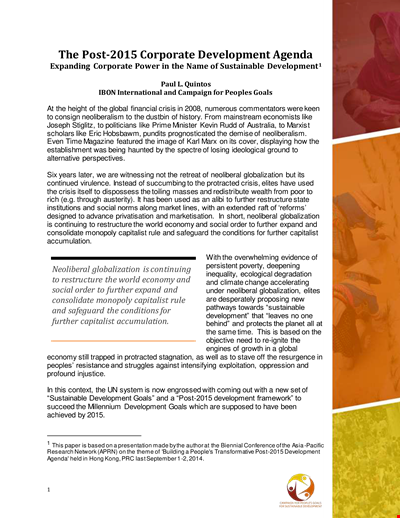/339b04a1-6c37-40a3-8731-f2452c35090c.png)
Create Effective Use Cases with Our Use Case Template
Review Rating Score
If you're working on a software development project, a use case template is an essential tool for documenting the functional requirements. Our Use Case Template at BizzLibrary.com is the perfect solution, providing a clear and organized format for describing the usage of your application or system.
What is a Use Case?
A use case is a description of how a user interacts with a software application or system to achieve a specific goal. It outlines the steps, actions, and possible alternative paths involved in the usage of the application, helping to ensure that all functional requirements are clearly defined and accounted for.
Why Use a Use Case Template?
A use case template is a pre-structured document that guides you in creating a clear and consistent use case description. Here are some of the main benefits of using our Use Case Template:
- Organization: The template provides a structured framework for organizing your use cases, making it easier for stakeholders to understand and follow.
- Consistency: The standardized format of the template ensures that all use cases are described in a consistent and logical manner, allowing for easier maintenance and updates.
- Clarity: The template prompts you to include all essential information needed for a comprehensive use case description, ensuring a clear and concise understanding of the application's functional requirements.
- Efficiency: By using a pre-designed template, you can save time and effort by focusing on content rather than formatting.
- Collaboration: The template makes it easier to collaborate with stakeholders and team members by providing a common language and structure for discussing functional requirements.
How to Use the Use Case Template
Our Use Case Template includes the following essential sections:
- Use Case Number and Name: Provides a unique identifier for the use case and a descriptive name.
- Actors: Defines the users or external systems interacting with the application.
- Pre-Conditions: Describes the state of the system and environment before the use case is initiated.
- Flow of Events: Outlines the main steps involved in the use case, including alternative paths and error handling.
- Post-Conditions: Describes the state of the system and environment after the use case is completed.
- Additional Requirements: Lists any non-functional requirements or constraints related to the use case.
Download our Use Case Template in DOCX format now and start documenting your software application's functional requirements with ease. Our template is fully customizable, allowing you to tailor it to your specific project's needs and requirements.
Visit BizzLibrary.com now to access a wide range of document templates, including use case templates, business proposal templates, and more, and take your software development project to the next level!
Is the content above helpfull?
Thanks for letting us know!
Reviews
Lavonda Madden(6/28/2023) - DEU
Grateful!!
Author. Content was provided by:
Elizabeth Davis
Elizabeth is from the sunny desert city of Phoenix, Arizona. She is thrilled to connect with professionals and like-minded individuals who share a passion for social technologies, content creation, and the exciting possibilities that AI brings to the world of social media. Her hobbies are hiking, climbing, and horse riding. Elizabeth has a master's degree in Social Technologies that she received at the ASU (Arizona State University). As a freelancer, she mostly contributes content related to IT. This includes articles on templates and forms provided by our community.
Follow Elizabeth
Last modified
Our Latest Blog
- The Importance of Vehicle Inspections in Rent-to-Own Car Agreements
- Setting Up Your E-mail Marketing for Your Business: The Blueprint to Skyrocketing Engagement and Sales
- The Power of Document Templates: Enhancing Efficiency and Streamlining Workflows
- Writing a Great Resume: Tips from a Professional Resume Writer
Template Tags
Need help?
We are standing by to assist you. Please keep in mind we are not licensed attorneys and cannot address any legal related questions.
-
Chat
Online - Email
Send a message
You May Also Like

Creating a Personal Birth Plan Template for a Happy and Following Birth with Your Partner

Meeting Proposal Templates - Video-Focused | JordannaRajaProposal.com

Creating an Effective Informational Interview Agenda for a Successful Career Meeting

Client Website Design Proposal Agreement - Professional Website Design Services

Sample Proposal Collection: Explore Project Options for Inspiration

Lawn Care Services Proposal for Landscaping

Project Business Proposal Template | Word | Streamline Your Project Business

Nonprofit Program Budget Template | Project Budget for Organization

Simple Marketing Strategy Template for Effective Planning and Execution

College Website Design Proposal - Creative and Functional Website Solutions

Construction Engineering Work Order Template | Easy Project Management
![Sales Proposal Template: Create Winning Presentations for Clients | [Company Name]](/Storage/Media/8a0810c4-9d38-4d6e-90e0-f00324acf489.png?w=400&h520&format=png)
Sales Proposal Template: Create Winning Presentations for Clients | [Company Name]

Free Sales Action Plan Example PDF Template for Download

Download Loyalty Survey Template - Assessing Programmes, Rewards, and Loyalty

Corporate Development Agenda Template - Streamline and Enhance Development Initiatives Globally

IT Requirements Analysis Template - Streamline Your Process and Analysis of Requirements